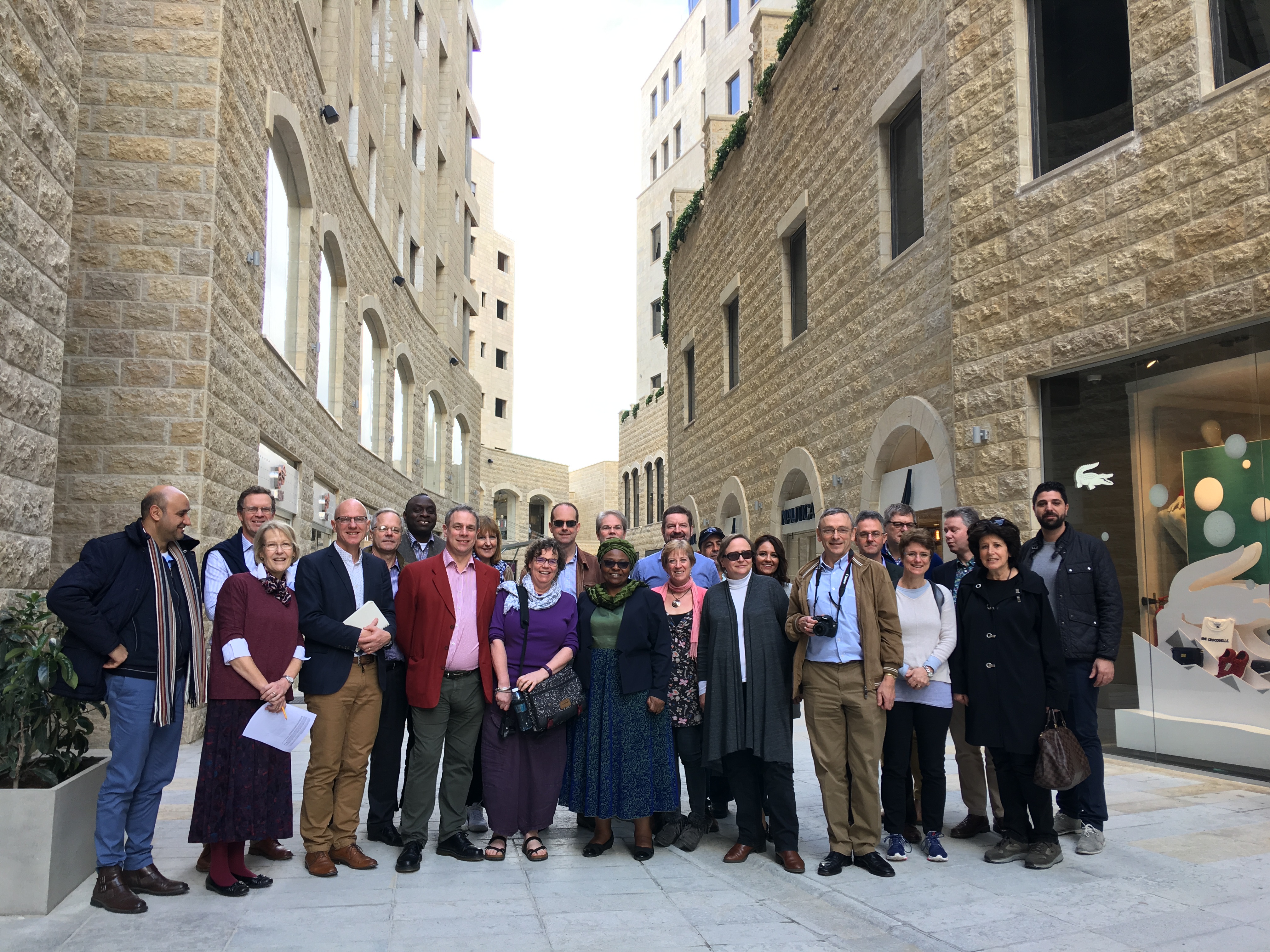In January, I had the very good fortune to take part in a study tour of Israel designed
for church leaders. Its focus was an exploration into the different political, religious
and cultural perspectives of Israelis and Palestinians – into the seemingly intractable
problems that confront what we call the Holy Land. The tour included visits to many
communities in both Israeli territory and the West Bank. We had meetings with
political and religious leaders in both areas, with the British Ambassador amongst
them. In what was a very intense eight-day visit, there was a sense that the twentyone
members of the group were sinking ever-deeper into a complex mix of
competing perspectives and convictions. As we were introduced to each new layer of
complexity, having arrived with our own preconceived ideas and assumptions, it
became ever-more obvious that superficial attempts at solutions to the problems and
tensions of that part of the world fail to capture important dimensions of what might
be described as truth. Each attempt on our part to imagine a ‘solution’ to the
problems seemed to be shattered immediately by the next encounter. What became
obvious, though, as we took in the geography and topography of the area, was that
the security of land and water are vital concerns for all.
For both Jews and non-Jews who live in Israel, and the different faiths that exist sideby-side
in the West Bank, there is no agreement about what would lead to peace and
mutual flourishing. Some of the views were surprising. We met Israeli Jews who would
be willing to pay a very high price to secure the well-being of Palestinians, believing
that would result in greater freedom and prosperity for all. The Jewish couple who
generously opened their home to us to join them for their sabbath meal are sending
some of their children to a ‘mixed religious school’ and are concerned that some
orthodox Jewish children are receiving a narrowly religious education that fails, in
their view, to equip them for 21st century living. They would say that basic science,
technology and wider global history are essential for all. We met Palestinian Christians
who would opt for a single state in which they can make their contribution to political
decision-making and the wider community alongside their Jewish neighbours. One
Christian leader who is engaged politically longs for a solution in which young people
of all faiths do national service together. As our wonderful guide kept repeating, “It is
complicated! It’s a mess!”
For about half of the 21 of us who participated, this was a first visit to Israel. It
inevitably, then, included a pilgrimage dimension. Those of you who have been to the
Holy Land will appreciate what a profound experience it can be to visit the places we
hear of in the gospels. This includes both the relatively tranquil Galilean sites where
much of Jesus’ ministry took place, and the busier parts of Jerusalem where he was
crucified and raised from the dead. Walking down the Mount of Olives and seeing the
sight of Gethsemane, as we did one gloriously sunny morning, one is bound to reflect
on the saving work of Christ and upon the fact that the Christian faith is based on
historical events. It asserts that God was at work in a unique and world-transforming
way in the historical figure of Jesus of Nazareth.
For those of us who love the Old Testament, and remembering that Jesus was himself
a Jew, it is also profoundly moving to be in the land of the patriarchs. I was delighted
that we visited Shiloh, the pre-Jerusalem capital of Israel where the ark of the
covenant rested for almost 400 years. We visited and passed by countless sites that
feature in the Jewish scriptures, not least Bethel where Jacob had his famous dream –
“Surely the Lord is in this place, and I did not know it!” he exclaimed on waking. And
standing by Jews praying at the Western Wall as the sabbath began, was inevitably a
moving experience.
Jerusalem, of course, is incomparable as an ancient religious site that has influenced
the history of the world. One can certainly understand why Jesus instructed the
daughters of Jerusalem not to weep for him but for themselves and their children. We
can lament that the things that make for peace have not been found between the
faiths that value that ancient city as sacred. With the psalmist (Psalm 122:6), we do
well to pray for peace of Jerusalem.
It is clear that, at a political level, the prize of peace for Jerusalem will depend upon
the wider peace of Israel and the Palestinian territories. And that in turn will only
follow on from peace across the Middle East and an acceptance that the Jews have a
right to their own state. A conversation with Professor Uzi Rabi, the Director of the
Centre for Middle East and African Studies within the University of Tel Aviv, was
provoking. He argues that the peace of Israel is not to be found in the politics and
western secular mindset of the 20th century. He suggests that the possibility of
mutual flourishing for the Israelis and Palestinians begins by acknowledging that we
are in the twenty-first century when politics is influenced by ‘bottom up’ forces and
the relevance of religions is accepted to be a growing reality of the future rather than
a diminishing hangover of the past.
More aware of the complexities, those of us who participated in this journey of
exploration and enquiry as Christian leaders were left unable to come to easy
judgements and conclusions. While needing more time to reflect on our experiences,
we were left simply able to pray to the Prince of the Peace for the wellbeing of all the
people of the Holy Land.
With my very best wishes
Dean John

